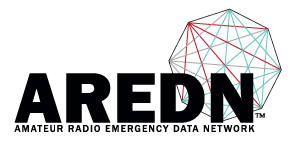I received the following on a mail list I follow.
Richard - wb6tae
=============
Richard - wb6tae
=============
From: Harold Feld
Date: August 17, 2016 at 1:32:45 PM EDT
Subject:Follow up on TP-Link/Software lockdown
Date: August 17, 2016 at 1:32:45 PM EDT
Subject:Follow up on TP-Link/Software lockdown
Some months back, we had a discussion on this list about TP-Link locking down its software to comply with FCC regulations on unlicensed.
It turns out there was a lot more to the story than just router manufacturers responding to perceived (or actual) pressure to lockdown software and make it impossible to use open source software. On August 1, the FCC and TP-Link entered into a consent decree which sheds much light on what was happening and marks a significant shift in the FCC's approach to open source.
http://transition.fcc.gov/Daily_Releases/Daily_Business/2016/db0801/DA-16-850A1.pdf
Summary:
TP-Link was under investigation for marketing Wi-Fi routers in the US that allowed users to easily change the country code, thus violating FCC rules on applicable power.
TP-Link responded by locking down the software so no one could do anything, including install third party software.
TP-Link said they needed to do this to comply with the FCC's rules. Which was sort of true, but not for the reason people thought. It was a fix for a violation, not a general response to the FCC's NPRM.
[HF observation: Since the investigation was still ongoing, neither the FCC nor TP-Link could talk about it, or even divulge the fact *of* the investigation. So we all naturally assumed it was a product of the Notice of Proposed Rulemaking and represented a trend. Logical of us, but it turns out not so much.]
The final settlement with TP-Link requires them to (a) acknowledge that the FCC does not require that they lock down software;
[HF Observation: This was relief we specifically asked for, although we thought we were asking for it in the context of a the general rulemaking. See PK ex parte here: https://ecfsapi.fcc.gov/file/60001841019.pdf]
and, more importantly, (b) that TP-Link work with the FCC to develop a means to meet the security requirement *and* support 3rd party software, particularly open source software.
General Observation.
While this is hardly the end of issues regarding open source software in WiFi routers (and other unlicensed devices), it is equally important to recognize the overall policy significance.
1. OET has officially said that it is the policy of the FCC to support use of third party software and open source. That is important to have to pushback on manufacturers who maintain that locking down software is the easiest way to make the FCC happy. We now have documented evidence that elimination of third party software (particularly open source) will NOT make the FCC happy. In fact, while the FCC is not going to prohibit manufacturers from locking down software, they would regard it as a bad thing if there was no way to install open source on wifi routers.
In the battle of "regulation by raised eyebrow," we now have a big bushy eyebrow.
2. The FCC feels it needs to be responsive to the open source community and actively show how much they support open source. Whether the FCC is "sincere" or politically expedient is rather irrelevant. This is policy, not Tinder. And, as i like to say, in DC pandering is a sign of respect. it means they fear/respect you enough to at least pretend to like you.
Furthermore, the FCC is willing to engage and take direction from open source advocates. They responded to our request for an acknowledgement from the manufacturer that the FCC does not require software lockdown. They then went even further and required the manufacturer to at least pretend to work with the FCC to find a solution that would permit open source.
This creates opportunities (e.g., the open source community can offer to work with TP-Link and the FCC). it also is a sign that the Open Source community has political strength it should cultivate.
3. Culture shift at the FCC can happen, but it takes time. As I said last year, I and Sacha Meinrath and others advocating at the FCC are the beneficiaries of everything Dewayne Hendricks, David Reed, and others did. By pounding their heads against the brick wall of the FCC culture for decades, they softened it to something more like molten magma. Those of us continuing to advocate are helping alter the culture even further.
While we should not regard these victories as anything close to conclusive, they are important and necessary to counter despair. All true advocacy is culture change. Of necessity, that takes a very long time. It is hard enough to change people's minds and institutions at the best of times. Against the combined lobbying might of incumbents, it is an even more daunting challenge. But as this consent decree shows, we can be successful.
